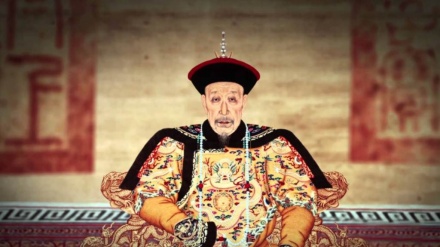Iranian stories and fables (131)
In this program like the previous program we focus on the role of names chosen for the characters in the precious collection of the One Thousand and One Nights.
This section is followed by another episode of the story of "Khalifeye qollabi" meaning the bogus caliph.
As we said last week, literary critics, particularly the contemporary ones, including Roland Barthes and Louis Strauss, believe that special names chosen for the characters of the story are based on different aspects including the written, conceptual, symbolic, and phonetic ones. Novelists have always taken special care in relation to the names they give their characters. They always choose the name of their characters after careful consideration.
As literary critics say authors choose special names for the characters of their stories consciously, and by their own special reasons. In analysis of a piece, special names should be taken into consideration as well as considering the connotative meaning of the names, and considering the symbolic and social aspects as well. However the descriptive value of a piece disappears after being translated into another language. And the special names in the precious collection of One Thousand and One Nights which has Persian- Indian origin have the same destiny after being translated into different languages. Actually the narrators of these stories have chosen the names of the heroes of the stories in a way that these names have a direct relationship with their destiny, or as some critics say, give us a hint as to the destiny of the characters involved.
Let us wrap up our discussion, and proceed to the next section of our program. Today we continue another episode of the story of "Khalifeye Qollabi" meaning the bogus caliph.
We said that once upon a time there was a caliph called Haroun al- Rashid who set out from his palace, along with his vizier, Jafar al- Barmaki, and a swordsman in order to see what was happening in the city he was governing. They all took off their royal clothes and dressed like ordinary citizens, in order to stay incognito. They went on and on until they reached a river bank where they spotted a ship. The people said it belonged to the caliph which made the real caliph and his companions shocked. Therefore they decided to come back to the river that same night in order to see to whom the ship belonged to.
And now the rest of the story.
The next night Haroun al- Rashid along with his vizier Jafar Barmaki and their swordsman set out of the palace to watch the ship, that people claimed belonged to the caliph. They stood on the same spot near the river bank until the man who took them through the river arrived. They greeted with the old man and got on board his boat. They hadn't moved an inch that the ship appeared so they waited on the spot and tried to see who was on the deck of the ship.
Just like the night before they saw a man with royal clothes who looked like Haroun al- Rashid. Besides him stood a man like the caliph's vizier Jafar Barmaki. On the ship there was also a group of bogus caliph's servants warned people not to near the ship just like other nights.
At that time Haroun al- Rashid paid ten gold coins to the old man for following the ship to see where it went.
The old man agreed and sailed behind the ship. They went on and on until they reached vast gardens near the river bank. There stood some servants and guards who were holding lights in their hands. As the caliph arrived, those servants brought a decorated horse and went forward. Then they led the caliph on the horse.
Haroun al- Rashid, his vizier and his swordsman got off the boat, paid the old man and followed the man supposed to be the caliph. After a few steps, the caliph's guards spotted the trio and arrested them. Then they took them to the bogus caliph.
AE/MD/EA


